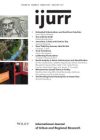The two major problems with the social polarization thesis are its definition and quantification. This article focuses on a dual labour market, locally and internationally, but ignores wider social inequality. A framework developed from Friedmann’s world city hypothesis and data on changes in occupation, status and migration are used to test the validity of the hypothesis in Singapore, Hong Kong, Taipei and Seoul. The results show that, in all these cities, there is a common trend towards professionalization, but no accompanying growth in managers, clerks, and self‐employed and household labour. Different scenarios of social polarization have been observed in two types of Asian world city, the ‘city state’ (e.g. Singapore and Hong Kong) and the ‘capital city’ (e.g. Taipei and Seoul). Singapore and Hong Kong are examples of a centralized development model that enhances the labour force and expands cross‐border networks with polarized immigrant workers. In contrast, Taipei and Seoul, both of which are subject to political tensions, demonstrate anti‐centralizing tendencies and have had to prevent the emigration of native elites and control the immigration of low‐skilled foreign workers. The social polarization hypothesis in Asian world cities needs to be re‐examined in the local institutional context mediated by the social policies of developmental states.
Details
Written by:
PO‐FEN TAI
Digital Object Identifier (DOI)
10.1111/j.1468-2427.2010.00911.x
About DOI
Read full article as PDF
Read full article as HTML
See the references for this article
